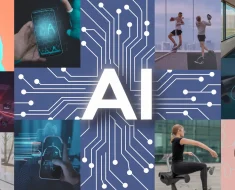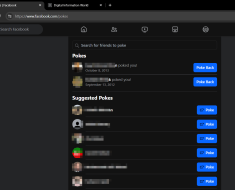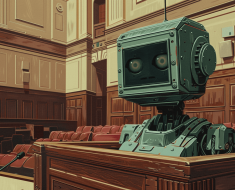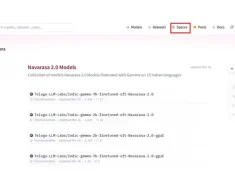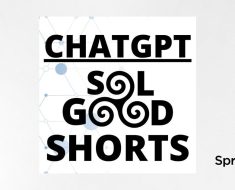In today’s fast-paced job market, the way companies hire has changed dramatically. One of the most significant developments is the rise in AI adoption rate within recruitment. As businesses strive to find the best talent efficiently, AI has become an integral part of the hiring process. But what does this mean for you, the job seeker? Let’s explore how AI is transforming recruitment and what you need to know to navigate this new landscape.
The Growing AI Adoption Rate in Recruitment


The AI adoption rate in recruitment is rapidly increasing as companies seek to streamline their hiring processes. According to a recent study, more than half of employers have already integrated AI into their recruitment strategies, with many more planning to follow suit¹. This trend is driven by the need to handle large volumes of applications quickly and accurately, ensuring that the best candidates are identified without bias.
AI tools can sift through thousands of resumes in seconds, identifying candidates who match the job requirements. This not only speeds up the recruitment process but also helps in making more informed decisions. For instance, AI can analyze candidates’ skills, experience, and even personality traits to predict their suitability for a role². This level of analysis was previously impossible with traditional recruitment methods.
How AI is Changing the Recruitment Process


AI is revolutionizing recruitment by automating various stages of the hiring process. Here are some key areas where the AI adoption rate is making a difference:
- Resume Screening: AI-powered tools can quickly scan and evaluate resumes, highlighting the most relevant candidates based on predefined criteria. This reduces the time recruiters spend on manual screening and allows them to focus on more strategic tasks³.
- Candidate Matching: Advanced algorithms can match candidates with job openings by analyzing a wide range of factors, including skills, experience, and cultural fit. This ensures that only the most suitable candidates are considered for each position⁴.
- Interview Scheduling: AI can automate the scheduling of interviews, coordinating between candidates and interviewers to find the best times, thus eliminating back-and-forth communications⁵.
These innovations are not just about efficiency; they also enhance the candidate experience. By providing timely updates and feedback, AI tools ensure that candidates are not left in the dark about their application status.
The Benefits and Challenges of AI in Recruitment


The rise of the AI adoption rate in recruitment offers numerous benefits, but it also comes with challenges. Let’s take a closer look at both sides of the coin:
Benefits
- Efficiency: AI can process large amounts of data quickly, reducing the time it takes to fill positions and allowing recruiters to focus on strategic activities⁶.
- Reduced Bias: AI can help eliminate unconscious bias in recruitment by focusing solely on candidates’ qualifications and experience rather than personal characteristics⁷.
- Improved Candidate Experience: AI tools can provide candidates with real-time updates and feedback, enhancing their overall experience and perception of the company⁸.
Challenges
- Lack of Human Touch: While AI can handle many tasks, it lacks the human touch that is often crucial in recruitment. Personal interactions and gut feelings still play an important role in assessing candidates⁹.
What This Means for Job Seekers


As a job seeker, understanding the role of AI in recruitment can give you an edge in the job market. Here are some tips to help you navigate this new landscape:
- Optimize Your Resume: Use keywords that match the job description to increase the chances of your resume being picked up by AI screening tools. The AI adoption rate means that more companies are using these tools⁶.
- Prepare for AI Interviews: Be ready for initial screenings conducted by AI chatbots. Practice answering common questions clearly and concisely⁷.
Conclusion
The AI adoption rate in recruitment is transforming how companies hire and how you, as a job seeker, should approach the job search. While AI offers numerous benefits, such as increased efficiency and reduced bias, it’s essential to be aware of the challenges it presents. By understanding how AI is used in recruitment and preparing accordingly, you can navigate this evolving landscape with confidence and increase your chances of landing your next job.
Citations
1. “AI in Recruitment: Navigating the Advantages and Challenges.” Deeper Signals, 2024.
2. “AI in Recruitment – Everything you need to know.” Jobylon, 2023.
3. “Top AI in Hiring Statistics in 2024.” ellow.io, 2024.
4. “11 Best AI Recruiting Software Tools in 2024.” Select Software Reviews, 2024.
5. “AI in Recruiting: Transforming Hiring with Technology in 2024.” Peoplebox, 2024.
6. “The Best AI Recruiting Tools (updated for 2024).” HeroHunt.ai, 2024.
8. “41 Top AI Adoption Statistics for 2024.” Digital Adoption, 2024. 9. “AI in Recruitment: Managing the Risks for Successful Adoption.” AIHR, 2024.
Please note, that the author may have used some AI technology to create the content on this website. But please remember, this is a general disclaimer: the author can’t take the blame for any mistakes or missing info. All the content is aimed to be helpful and informative, but it’s provided ‘as is’ with no promises of being complete, accurate, or current. For more details and the full scope of this disclaimer, check out the disclaimer page on the website.
